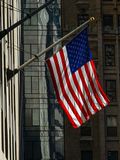記事・レポート
活動レポート
A few observations about politics and the coronavirus pandemic
Gerald Curtis
May 18, 2020
May 18, 2020
更新日 : 2020年05月21日
(木)

国内の感染に関する情報に翻弄されがちな私たちの目を、世界に広げてくれます。
The Warning Against the Rise of the Surveillance State and Protectionism
The longer the coronavirus pandemic continues the higher will be the price paid in terms of general economic well-being and social and political stability. Record high levels of unemployment, equal to if not surpassing the level reached at the height of the Great Depression in the 1930s, growing inequality in income between the haves and the have-nots, the strain on health care systems, and the collapse of some of them, will exacerbate social tensions and possibly result in serious social unrest. The need for enlightened leadership to see us through this crisis while maintaining our democratic way of life has never been greater.In the United States we are seeing sporadic but all too frequent instances of demonstrations and even violence to protest having to wear facemasks, shelter in place, and observe social distancing guidelines. There have been random racist attacks on Chinese and other Asian Americans. An economic and social environment that in recent years has produced populist politics and demagoguery is being made all the more toxic by the coronavirus crisis.
Policies that constrain personal freedoms are unavoidable in the face of this global pandemic, but the possibility that some governments will keep restrictions on personal freedoms in place even after the pandemic is conquered should not be underestimated. AI and other modern technologies give states the capability to invade people's privacy and monitor their activities in unprecedented and dangerous ways. The temptation for political leaders to use those tools in the name of protecting the public welfare will grow stronger as a result of the coronavirus pandemic. Seventy years ago George Orwell, in his dystopian novel 1984, warned against the rise of the surveillance state. China now offers a 21st century model of such a state with its virtually limitless monitoring and control of a population of nearly a billion and a half people.
The collapse of the global order, the rise of rampant nationalism and beggar-thy-neighbor protectionist economic policies along with the weakening of long-standing alliances would not be a new phenomenon in world history. It is precisely what happened in the 1930s. History, it is sometimes said, does not repeat but it does often rhyme. Democratic nations need to band together to find a way to manage an international system that prevents our future from rhyming with the disastrous decade that gave rise to fascism and ended with the outbreak of the Second World War.
The Analysis for the U.S. Presidential Election
The American presidential election to be held this November will be one of the most important in recent memory. It will set the course of American foreign policy for the rest of this decade and beyond and will have a determining impact on the shape of the international political and economic system that will emerge over the coming years.If President Trump is reelected, we can expect an acceleration of the collapse of the international order as we have known it. International cooperation, whether with regard to pandemics, climate change, alliance management and other issues, will become more difficult. There are limits to how much the US can disengage from the rest of the world, but under Trump it will move in the direction of more protectionism and a go-it-alone foreign policy. And domestically Trump’s reelection will exacerbate the deep and bitter divisions in American society.
The Trump Administration’s inconsistent and unsuccessful efforts to contain the epidemic and the shutting down of the economy provide the Democratic Party with an excellent chance to win the presidency and possibly majorities in the Senate and House of Representatives as well. Although Trump's popularity among his core supporters has been remarkably constant throughout his presidency, his ability to garner the support of moderate Republicans and to attract independents to vote for him are very much in doubt. He cannot tout the success of his economic policy now that the nation faces near 25% unemployment and a long and difficult road back to normalcy.
Although Hillary Clinton garnered 2.9 million votes more than Donald Trump nationwide in the 2016 presidential election she lost because Trump won razor thin pluralities in a small number of states that enabled him to prevail in the Electoral College. He won the popular vote by less than one percentage point in Michigan (0.2 percent), Pennsylvania (0.7 percent) and Wisconsin (0.8 percent). If support for Biden in these and other battleground states is even slightly higher than it was for Hillary Clinton while the results in other states repeat the pattern of 2016, he will win the election.
Yet a Democratic victory in November is far from a sure thing. Joe Biden entered the race for the Democratic Party nomination for President arguing that he had the best chance to defeat Donald Trump. So far at least he has proven to be a weak candidate. He spends an inordinate amount of time looking back and talking about his past accomplishments, and occasionally getting tongue tied in the process. He is unsparing in his criticism of Trump’s handling of the corona crisis but the proposals he has offered for dealing with the crisis and for leading the nation to a post-corona world are bland and all too predictable. So far at least he has failed to present exciting ideas and a compelling vision for the future, preferring to offer vague assurances that he will restore the “soul” of the nation.
Moreover, accusations of sexual assault by a former staffer in his Senate office, doubts about his physical health and mental acuity, and questions about whether he directly or indirectly helped his son secure lucrative business deals in the Ukraine and in China when he was Vice President have the potential to become explosive campaign issues. Ironically, Trump’s extramarital affairs and his use of public office to enrich his family have not dented his popularity among his supporters, probably because they do not expect better of him. Biden, on the other hand, has an image of moral rectitude and incorruptibility. Anything that tarnishes that image could do serious damage to his electoral hopes.
Biden and other Democratic Party leaders are intent to frame the election as a referendum on Donald Trump, expecting that voters who want to be rid of Trump will vote for Biden as the anti-Trump. Biden is indeed the antithesis of Donald Trump in many ways. He believes in compromise rather than confrontation. He is a strong supporter of America’s alliances and opposed to a go-it-alone foreign policy. Where Trump is narcissistic Biden is empathetic. And unlike Trump, who came into the White House without any previous government experience, Biden has four decades of experience as a Senator and Vice President behind him.
This affords Biden the opportunity to attract votes from all but die-hard Trump supporters. But being the anti-Trump is not enough. Biden and the Democratic Party need to offer voters a compelling reason why they should vote for him and not just against Trump. If they fail to do that there is likely to be a low voting rate among liberal and left leaning Democrats disappointed with Biden’s policy ideas, and among independents and moderate Republicans who do not like Trump the man but find his policies more attractive than Biden’s vague promises. Biden’s ability to prevail on November 3rd hinges on his making good use of the time between now and the Election Day to get the electorate excited about the prospects of a Biden presidency.
At the present time it is anyone's guess whether Trump or Biden will win the election. There are some states where a majority of voters are certain to vote for Trump and others that are expected to give majority support to Biden. Each candidate probably can count on obtaining more than 200 votes in the Electoral College. Which one reaches the magic number of 270 needed to win will depend on voters in a small number of battleground states. There are six states in particular that are likely to decide who will become the next President of the United States: Arizona, Wisconsin, Michigan, Pennsylvania, North Carolina, and Florida. The average of public opinion polls currently shows Biden trailing Trump by 3 points in North Carolina but enjoying a lead in the other five states. That includes 3-point lead in Wisconsin, 6 points in Florida and Pennsylvania, 8 in Michigan and 9 in Arizona.
It is important not to make too much of these numbers at this stage in the race. There are more than five months until the Election Day. Anything can happen. If there is a second wave of coronavirus infections, more deaths, and increased unemployment Trump’s reelection chances will be doomed. On the other hand, if the crisis subsides and optimism grows that an economic recovery is on the way Trump’s election prospects will become considerably brighter. People who were confident in 2016 that Hillary Clinton was going to win would be well advised to be cautious in predicting the outcome of this year’s presidential election.
U.S.-China Relations and International Politics
Whether Trump is reelected or Biden wins the presidency, relations between the United States and China are almost certain to become more tense and conflicted. In the United States the belief that China poses a threat to American interests and to the global order is stronger now than at any time since the two countries established diplomatic relations in the 1970s. The outbreak of the coronavirus epidemic in Wuhan, suspicions that the Chinese government has covered up how the epidemic erupted and has not provided accurate data on how many Chinese were infected and died has only intensified anti-China sentiment. Both Biden and Trump sense that there are votes to be had in being tough on China. Trump’s camp has taken out ads attacking Biden for a history of being soft on China. Biden has responded in kind, calling President Xi Jinping a “thug” and accusing Trump of all but selling out to China.As for China, it is proving to be its own worst enemy in the way it has responded to foreign criticism of its initial response to the coronavirus epidemic, its refusal to allow foreign experts to investigate how the pandemic originated, and its angry denial that it has underreported the number of corona infections and deaths. When Australia proposed the establishment of an independent commission to investigate the origins of the coronavirus, China responded by threatening a boycott of Australian goods. It dismissed Australia as being nothing more than “chewing gum stuck to the bottom of China’s shoe.” The hard line and arrogant tone adopted by spokesmen in the government’s propaganda office has sparked an international backlash. It has strengthened the voices of those who argue for a “decoupling” from the Chinese economy and for a concerted effort to contain its geopolitical influence.
China is unlikely to emerge as a stronger country on the world stage as a result of the coronavirus crisis. For one thing, the lesson that countries around the world, including the United States, Japan, and nations in Southeast Asia, have drawn from the pandemic is that they have to diversify their supply chains and foreign investments. The coronavirus pandemic, rather than leading to the end of globalization, is more likely to result in a more diversified global system as governments and businesses seek to hedge risks by diversifying their investments and supply chains.
Diversification more than anything else means reducing dependence on China. The Japanese government’s stimulus bill in response to Covid-19, for example, includes billions of dollars to help Japanese companies move production out of China, bringing some of it back to Japan and moving other operations to Southeast Asia. The United States and Europe are making similar efforts to reduce exposure to China and to limit Chinese investments in their countries, especially in high tech industries.
“Decoupling” from a market of 1.4 billion people is not a realistic option for either Japan or the United States. But as a consequence of the coronavirus pandemic China is going to face a world leerier of Chinese data, motives, and ambitions.
How the United States and China manage their relations is going to be the most important issue in international politics for years to come. Unfortunately, we cannot expect the presidential election campaign to produce a cool-headed and rational debate in the US about China policy. If China then overreacts to the inflammatory rhetoric that is likely to characterize the debate, it will only make it that more difficult to reverse the deterioration in relations once the election is over.
Thoughtful observers know that neither China nor the United States, nor any country for that matter, will benefit from the two largest economic and military powers in the world becoming embroiled in a new Cold War. But that does not mean it will not happen. History is replete with examples of conflict erupting between the existing great power and a rising challenger.
Japan cannot afford to just sit on the sidelines, watch the US-China relationship evolve, and then decide how to adjust to changed circumstances. It is in Japan’s vital national interests to be proactive and do what it can either alone or in concert with other countries to avoid having Sino-US relations spiral downward and the international political system devolve into international anarchy.
Looking Beyond The Coronavirus Pandemic
Developing a coronavirus vaccine, distributing it around the world, bringing the pandemic to an end and opening our economies is going to take years rather than months. Even then “normalization” will not mean returning to the world as we knew it before corona. We are experiencing lifestyle changes that will continue into the post-corona era. There will be more people working from home, more online shopping, remote learning, and telemedicine. There will be fewer international travelers, fewer department stores and fewer restaurants. There will be many other changes we cannot yet fully anticipate.The post-corona world, and the path we must travel to get there, present immense dangers but also new opportunities. The coronavirus pandemic is a wake-up call of sorts. It has brought home the need to respect nature’s awesome power. It is a reminder of the fragility of our economies and offers an opportunity to think anew about how to provide for the public’s health and economic wellbeing. And it demands of all of us that we remain vigilant to defend our democratic way of life. It is the most profound and difficult challenge we have known in our lifetime.
プロフィール

ジェラルド・カーティス(コロンビア大学政治学名誉教授)
コロンビア大学政治学名誉教授、東京財団名誉研究員、元コロンビア大学の東アジア研究所長。東京大学、慶応大学、早稲田大学、政策研究大学院大学、コレージュ・ド・フランス、シンガポール大学など客員教授を歴任。 大平正芳記念賞、中日新聞特別功労賞、国際交流基金賞、旭日重光賞を受賞。『政治と秋刀魚——日本と暮らして45年——』,『代議士の誕生』、『日本型政治の本質』、『日本政治をどう見るか』、『永田町政治の興亡』など日本政治外交、日米関係、米国のアジア政策についての著書は多数。
セミナーレポート

政治と秋刀魚 日本と暮らして四五年 【連載】2008年6月~
アカデミーヒルズでもお馴染み「カーティス先生」のライブラリーメンバー向けトークの記事。今年は来日の機会が奪われてしまいましたが、毎年カーティス先生の講義を楽しみにしているメンバーが多数いらっしゃいます。本記事はカーティス先生の書籍『政治と秋刀魚 日本と暮らして四五年』の出版記念でお話頂いたときのものです。ミュージシャンを目指して音楽大学に入学してから日本の研究をするに至った経緯、日本語の魅力、日本の政治現場での経験等、ファンでなくても楽しめる内容です。
注目の記事
-
03月25日 (火) 更新
本から「いま」が見えてくる新刊10選 ~2025年3月~
毎日出版されるたくさんの本を眺めていると、世の中の"いま"が見えてくる。新刊書籍の中から、今知っておきたいテーマを扱った10冊の本を紹介しま....
-
03月25日 (火) 更新
aiaiのなんか気になる社会のこと
「aiaiのなんか気になる社会のこと」は、「社会課題」よりもっと手前の「ちょっと気になる社会のこと」に目を向けながら、一市民としての視点や選....
-
03月25日 (火) 更新
米大学卒業式の注目スピーチから得られる学び<イベントレポート>
ニューヨークを拠点に地政学リスク分析の分野でご活躍され、米国社会、日本社会を鋭く分析されているライターの渡邊裕子さんに、アメリカの大学の卒業....
現在募集中のイベント
-
開催日 : 05月19日 (月) 12:30~14:15
ジェラルド・カーティス氏 特別講演「これからの民主主義」
コロンビア大学政治学名誉教授のジェラルド・カーティス氏をお迎えし、トランプ政権の今後の展望と、これからの民主主義の可能性についてご講演いただ....














